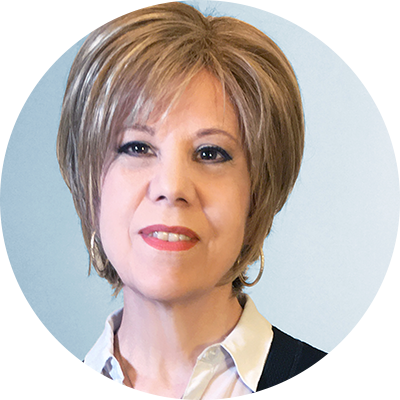
Author:
Teacher Maria vonAnderseck
Maria serves as a called and confirmed Chief Teacher in the restored government of God and she is an IDCCST Spiritual Life Coach. She is the co-founder of s8w Ministries. Teacher Maria walks you through spiritual transformation from start to finish, God’s way. View my profile.
Hi everyone, today I want to talk to you about the Transitional Knowledge Training (TKT) we offer in our new IDCCST Online Course and why this is important to God in this new season of change for the church.
Transitional Knowledge Training is God’s way of shifting our way of thinking to get everyone into a covenant mindset. One of the challenges Christians face today is Satan’s suggestion that if we all think alike (take on the mind of Christ), then God is making us into robots. We naturally want to believe we are free thinkers, when in fact, unless we are in covenant with God, Satan does our thinking for us.
Take for example the way we talk about having peace. Now that God has restored the covenant of Jesus Christ to the church, we talk about peace in a different way than we used to.
Because we relate to the world around us in a natural way, we think and care about our upside-down world at work, our turmoil at home, and our worrisome look through the windows of our global communities. We don’t like what we see: our peace is seemingly threatened by global warming, world-wide pandemic, and catastrophic disasters.
We naturally have our own organic way of relating to peace and what that means to us as we think about the cares of life (what we care about).
But when God talks about the peace He promises to give, He does not think like we do. He thinks in line with His covenant provision. He cares about first bringing us into harmony with Him and after having accomplished that, He then cares about governing and overseeing our soul to establish His knowledge in us to begin our fruit bearing in His kingdom.
There Are Two Kinds of Peace
As you can see, there are two kinds of peace that God functions with: peace with God and the peace of God.
1. Our peace with God happens when we enter into covenant with Him. God forgives sin and is no longer hostile towards us. His wrath is turned to mercy when He sealed our faith with the first token of the covenant as His sign and pledge that we belong to Him. He has taken ownership of our soul and translated us into His kingdom. We have peace with God.
2. The peace of God is the second definition of peace, and it has to do with the peace that God gives that works with grace and truth. God initiates peace as a gift and reward to buffer and shield our emotions as we labor with His truth. This happens in each growth cycle as He heals our soul and creates in us His fruit. God is talking about His overwatching care for us as we care for Him by being obedient in our priesthood to use His tools as we go through the process of regeneration (fruit bearing). We have the peace of God.
If you are not coming from a covenant mindset, you will find that you will experience resistance against thinking about the peace of God in this way. You might think, I say it differently, that’s all. I say that I have peace about it. We’re saying the same thing, we’re both talking about God. I just say it my way and you say it your way.
Money Doesn’t Grow on Trees
Have you ever heard the expression that money does not grow on trees? It’s a common saying, and we all know what it means. When spending money like crazy, like you have a bottomless source of funds (credit card) as if you don’t have bills to pay, someone might say, “You know, money doesn’t grow on trees.”
In other words, in the real world, when you need more money, you can’t go to a money tree that you planted in the back yard to get an endless supply. There’s a whole process involved in your financial world that spending is a part of. And since you know what that process is, you respect it. That’s not called being a robot, it’s called setting order.
The same thing is true about knowledge. Knowledge does not grow on trees. God has a set order He uses to get knowledge into the hands of His people. God’s order involves knowledge coming from His source, Jesus’ apostles today. God is the one who set order to peace because peace is part of His fruit bearing process. He does not want to leave peace in the hands of each believer to figure out for himself. God is a God of order as we read in the following verse.
Judges 6:26
And build an altar unto the Lord thy God upon the top of this rock, in the ORDERED PLACE, and take the second bullock, and offer a burnt sacrifice with the wood of the grove which thou shalt cut down.
When I talk about the two kinds of peace that are connected to Jesus’ covenant and how God defines peace, I’m not thinking about peace my own way. I’m relating to peace God’s way, the way He set order to peace, how He joined peace to grace and truth; and that speaks of being an obedient servant of God.
This ordered knowledge came through the servant whom God called forth in this end time to restore the church to the covenant of Jesus Christ. I’m talking about Apostle Eric vonAnderseck. When I teach, I’m not simply repeating robotically what Apostle Eric says, I’m functioning with the knowledge God set in order and I’m experiencing the process of regeneration as I work with the Holy Spirit.
The Peace of This World
I want to go back to the part where I pointed out the temptation to talk about peace our own way, saying for example that you have peace about it. The argument is that it doesn’t matter how you say it, we’re saying the same thing, we’re both talking about God giving peace. I just say it my way and you say it your way.
To dismantle this argument to discern the voice that is speaking, I want you to think about what “it” is and why you care about “it”, and how peace is connected to “it”.
IT will always mean the “thing” that is presently pressuring you and causing stress and anxiety, unrest and uncertainty. Naturally, this is about you and your life and that’s what you care about, so that’s what you talk about. You may be saying that God gave you peace about it, but you’re not thinking about the process of regeneration (God’s set order for peace), you’re thinking about what’s happening to you and how you’ve mentally assigned peace to that. So, we’re not really talking about the same thing. What this is, is the peace of this world and what that is, is the cares of this world.
1 Peter 5:7
Casting all your care upon him; for he careth for you.
This verse is great to teach about how we care about the priesthood we are given in the name of Jesus to reciprocate to God. When Apostle Peter exhorts that we cast all of our care upon the Lord, he is proving what we care about. We care about God and His plan to form Christ in us, and God in return cares for us and initiates grace and peace to oversee our growth cycle that we care about.
You might say that you’re thinking about God’s care when you say that you have peace about “it”, but you’re really thinking about how you can assign God to watch over the affairs of your life; “it” is not the priesthood. It should be the priesthood that you care about, but it isn’t what you’re talking about. God assigned His care to oversee His work to form Christ in you. That care is what we cast upon the Lord.
As our thinking shifts, so does our language. When you are in covenant with God, you talk in line with your newfound activity of faith. Your faith is now active with the things of Christ that God cares about and you’re experiencing His peace in a new way.
So then, what I want to get across is that when it comes to peace, we naturally think about it in a different way than God does; and that’s why Transitional Knowledge Training is so important. We have to be in agreement with God about His peace. God isn’t looking for robots, He’s calling the remnant to Him, those willing and obedient servants who will care about His covenant priesthood. Those are the ones that God will seek out; those are the ones that God will reciprocate to.
Transitional Knowledge Training is a fantastic opportunity for the church to come into agreement with God, to come into one faith as we share the mind of Christ. We are now offering our IDCCST Course online. You will have online access to the EVA Terms Glossary, Lesson Guide, and Handbook. Registration is free. Sign up today: s8w.org/idccst-online-course/
We’ll see you inside the course!




